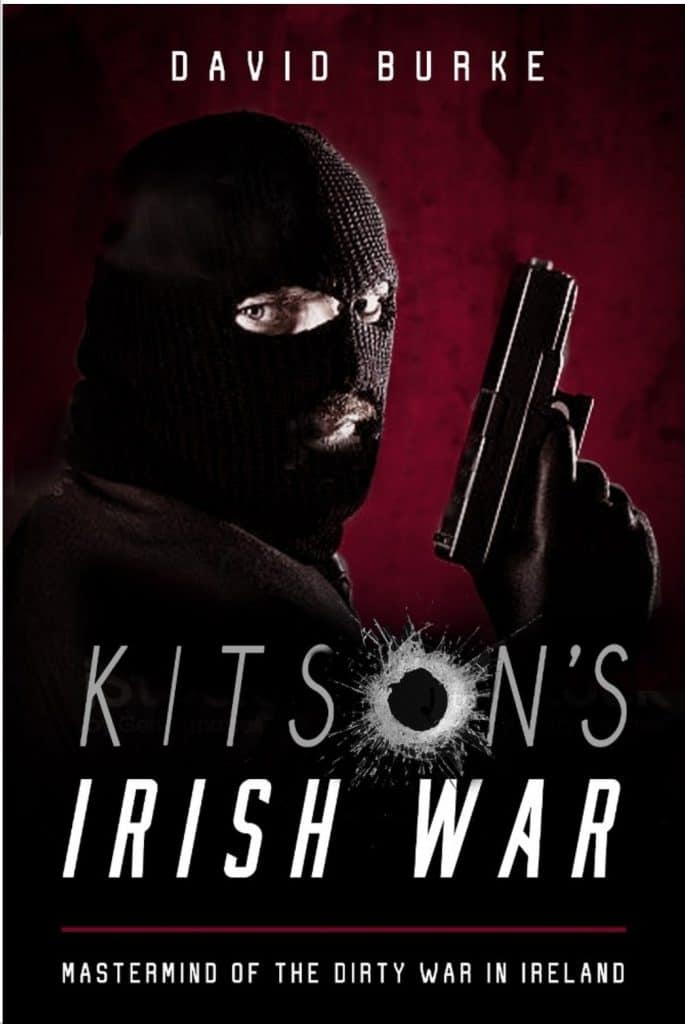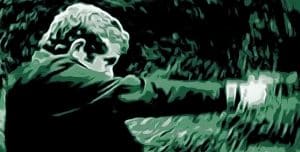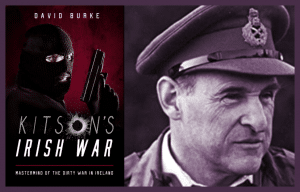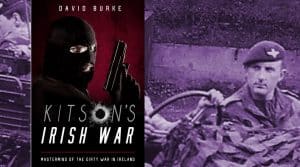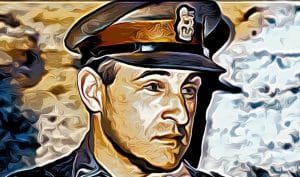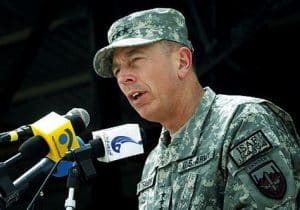
By David Burke.
Internment – arrest and detention without trial – was introduced by the Stormont Government of Northern Ireland in August 1971. Hundreds of Nationalists were rounded up and detained. Members of the UVF, UDA and Red Hand Commando were not targeted for arrest. The swoops were carried out by British troops including the Parachute Regiment. Loyalist gangs exploited the chaos that erupted to attack Catholic estates. It was against this background that members of the Parachute Regiment perpetrated the Ballymurphy massacre. Officially, it is now recognised by the British state that the Ballymurphy victims had not posed any sort of a threat to the military.
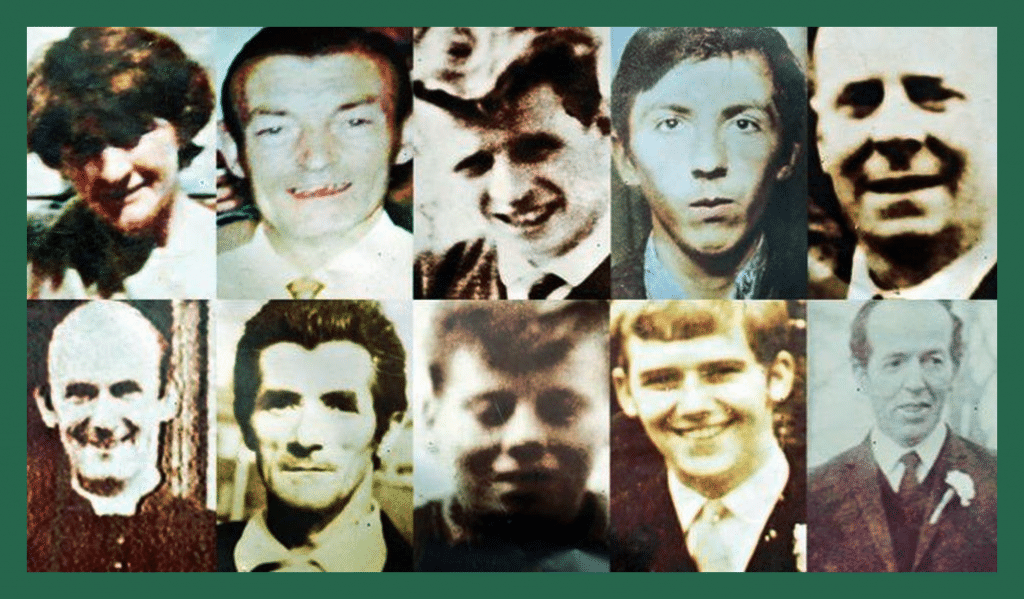
At the time of these atrocities Col. Derek Wilford was in command of 1 Para. He reported directly to his superior, Brigadier Frank Kitson, the British Army’s counterinsurgency guru who ran Belfast.
Kitson was praised by General Michael Carver for his efforts during the internment swoops in Belfast in the latter’s 1989 memoirs. Kitson was also ‘mentioned in despatches’ in the weekly London Gazette for his efforts.

Soldier F, one of the central figures in the Bloody Sunday massacre that took place the following January in Derry, was also ‘mentioned in despatches’ for his gallantry in Belfast in August 1971.
A soldier is mentioned in despatches for gallant or meritorious action in the face of the enemy. This happens after an official report is written by a superior officer and submitted to the high command. This means that someone such as Maj. Edward Loden, Col. Wilford or Kitson furnished a report about the gallantry of Soldier F during the internment swoops to General Ford and General Tuzo in HQNI at Lisburn. In turn, they would have passed it to Carver in London. If Kitson was not the instigator and author of the report praising Soldier F, he most certainly approved one passed to him by Wilford or another of his superior officers.
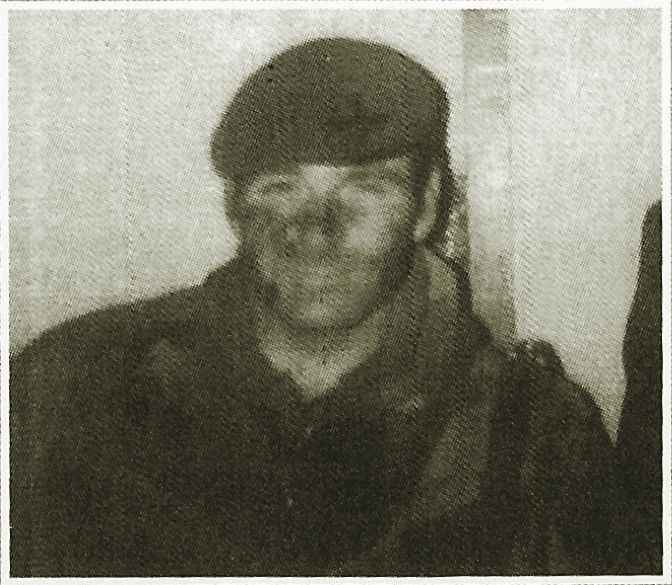
Soldier F’s ‘mention in despatches’ was published a few weeks after Bloody Sunday. Presumably, he knew all about the official report praising his gallantry before he went to Derry and became a key figure in the shootings that followed.
Indisputably, Soldier F was highly valued by both Wilford and Kitson.
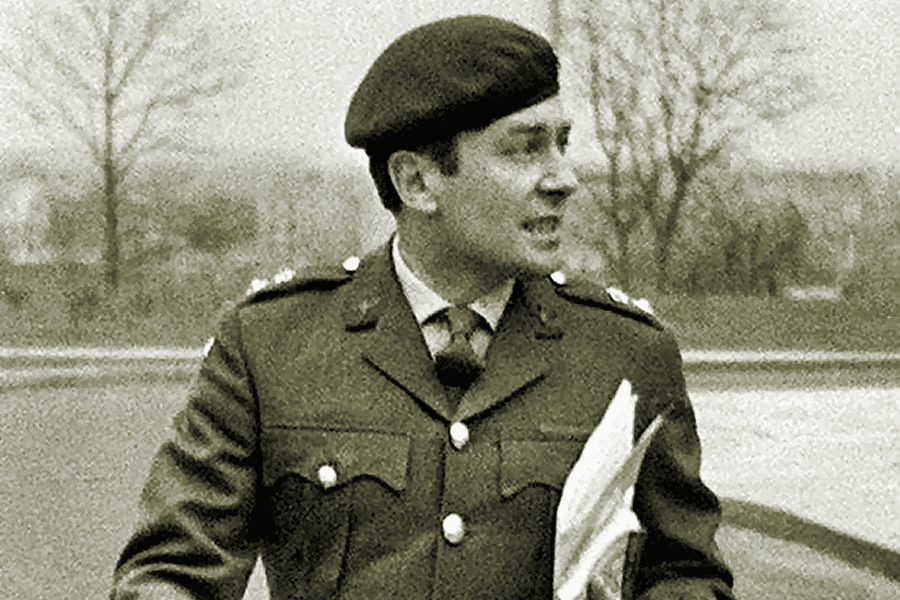
Soldier F, who had joined 1 Para in 1966, was a key member of the elite ‘Support Company’ of 1 Para, the group which carried out the Bloody Sunday massacre.
Soldiers mentioned in despatches are often seen as leaders of men with a bright military future ahead of them. Wilford and Kitson were obviously earmarking him for the future.
While the role of Soldier F in Belfast in August 1971 is not clear, what he did in Derry is now a matter of history: he was accused of murdering James Wray and William McKinney and of the attempted murders of Patrick O’Donnell, Joseph Friel, Joe Mahon and Michael Quinn on Bloody Sunday. He faced a seventh charge of the attempted murder of a person or persons unknown.

In his testimony to the Saville Inquiry in 2003, Soldier F admitted to firing 13 rounds on Bloody Sunday
The killings and attempted murders for which Soldier F was to have been tried occurred in the Glenfada Park North and Abbey Park north areas of Derry. He has also been linked to other shootings on the day including a sequence at a rubble barricade adjacent to the Rossville flats where six unarmed civilians were slaughtered. One of his bullets was found in one of these victims.
Last week, charges against him for murder on Bloody Sunday were dropped. That decision is now being challenged by way of a judicial review.

Also honoured by being mentioned in the London Gazette were the following paratroopers:
Corporal Patrick Butler;
Private Ronald Cook;
Sergeant Paul Copson;
Lance Corporal Joseph Hill;
Staff Sergeant Denis Gilbert Poynter;
Second Lieutenant John Pullinger.
Village would like to hear from anyone who knows anything about the gallantry and meritorious actions of the soldiers listed above in Belfast in August 1971.
David Burke is the author of ‘Kitson’s Irish War’. It can be purchased here:
https://www.mercierpress.ie/irish-books/kitson-s-irish-war/
OTHER STORIES ABOUT BLOODY SUNDAY, THE BALLYMURPHY MASSACRE, BRIGADIER FRANK KITSON AND COLONEL DEREK WILFORD ON THIS WEBSITE:
The covert plan to smash the IRA in Derry on Bloody Sunday by David Burke
Soldier F’s Bloody Sunday secrets. David Cleary knows enough to blackmail the British government.
Colin Wallace: Bloody Sunday, a very personal perspective
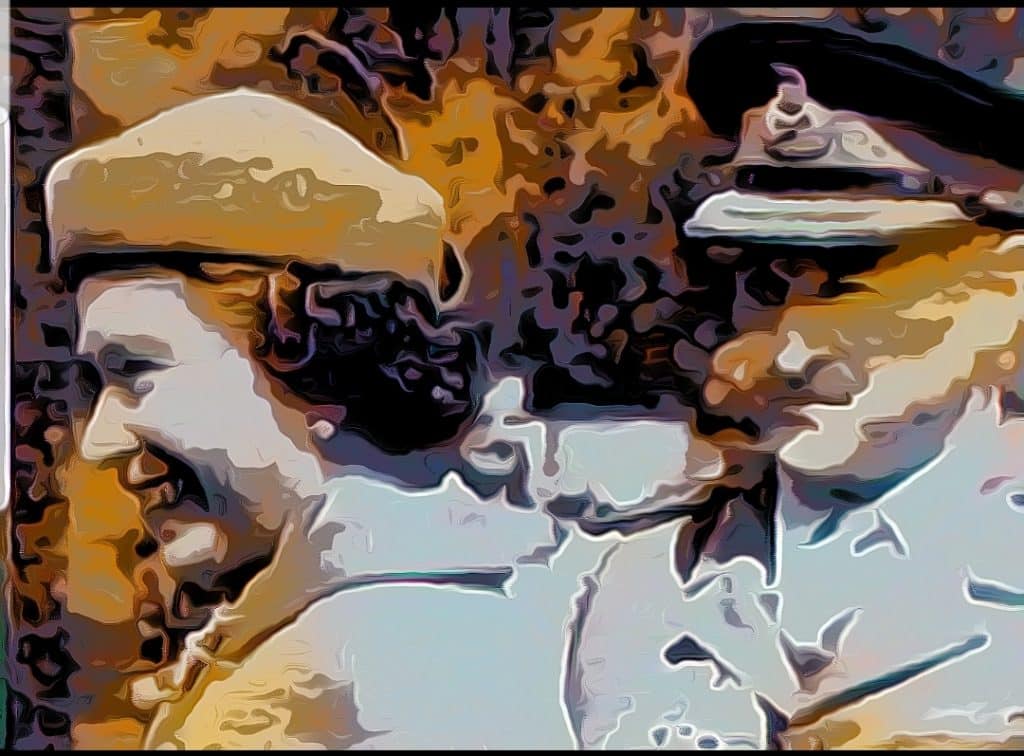
A Foul Unfinished Business. The shortcomings of, and plots against, Saville’s Bloody Sunday Inquiry.
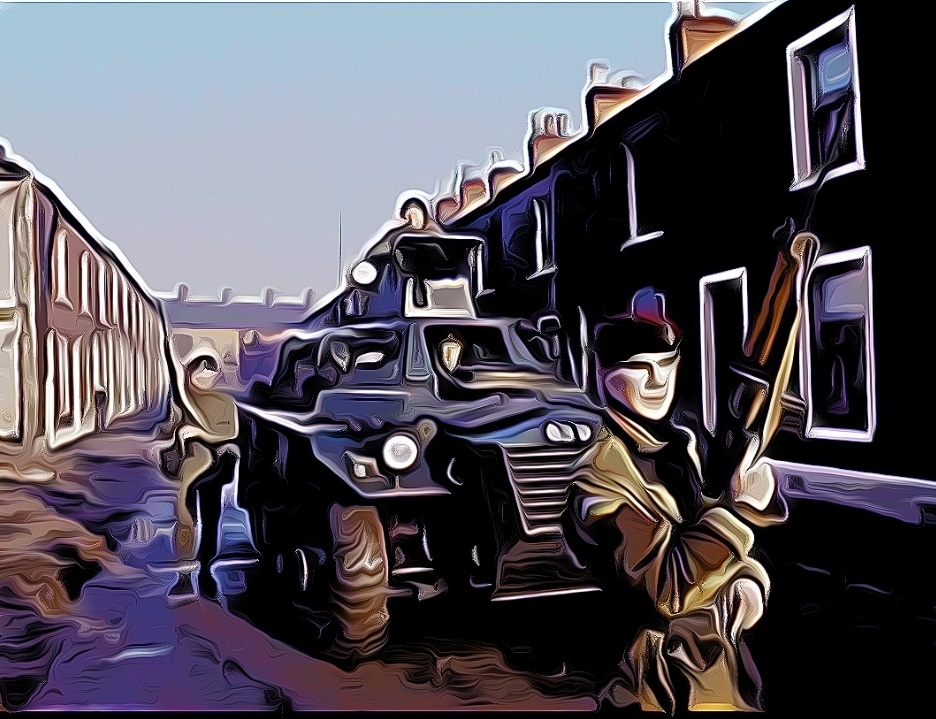

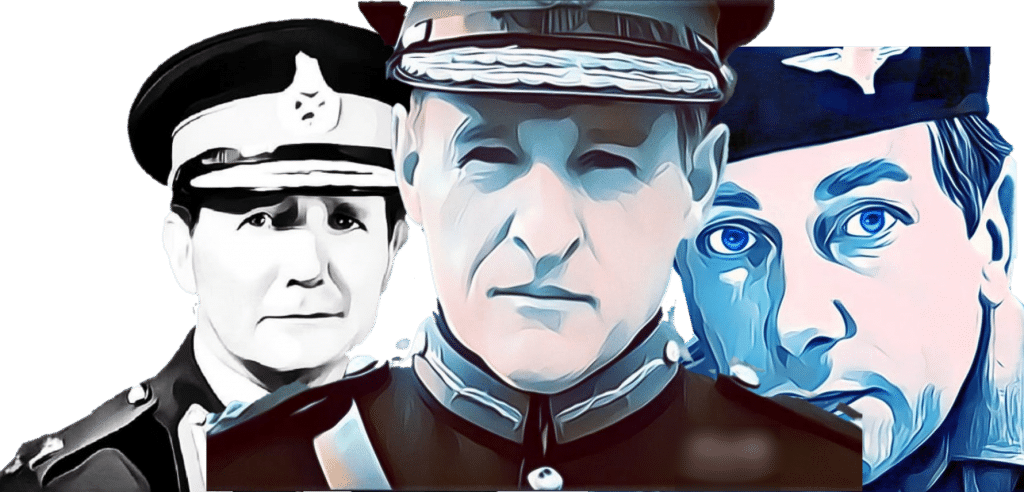
Soldier F, the heartless Bloody Sunday killer, is named.
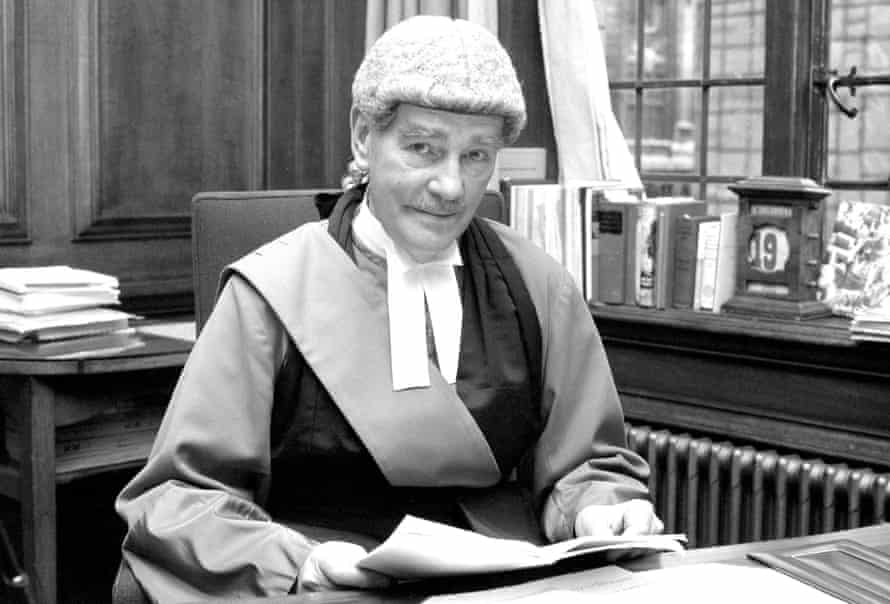
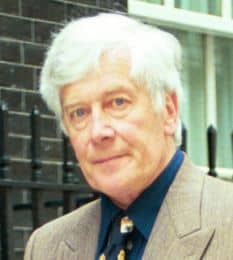

Brigadier Kitson’s motive for murdering unarmed civilians in Ballymurphy.
